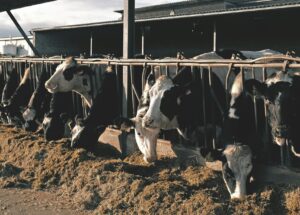Poor contractual relationships and unclear terms between producers and processors can affect dairy farmers’ ability to budget, manage price volatility, invest in their businesses and innovate.
To address these issues in the dairy supply chain, new regulations were introduced this year to ensure fairer practices. These changes aim to help dairy producers thrive while allowing processors and retailers to better serve their customers. The Fair Dealings Obligations Milk Regulations (FDOM24) sets out rules for how milk purchase contracts must operate and are designed to make dairy contracts fairer and more transparent. FDOM24 covers the direct purchase of cow’s milk from a farm by a business purchaser — so, from farm gate to dairy processor or manufacturer. FDOM24 in Summary Contracts must now be in writing, signed, and include clear terms about pricing, how long the contract lasts, how it can be ended, and how disputes will be settled.
If you’re a dairy producer or purchaser, any new milk purchase contract you make after 9 July 2024 must comply with the rules. And by 9 July 2025, all contracts – new and existing – must meet these standards.
 A dairy producer can make a complaint if:
A dairy producer can make a complaint if:
• they don’t have a written milk purchase contract
• their contract is missing something the regulations require
• their contract includes something that goes against the regulations
• if their contract uses a variable price set by the purchaser and they don’t explain, if asked, how they reached a new price within 7 days of a price review.
If there’s been a breach, a fine of up to 1% of the purchaser’s turnover can be used to compensate the producer.
Click HERE for full guidance on the new regulations, and to make a complaint.

